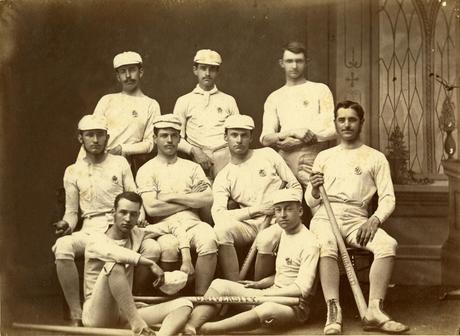I don’t remember if I saw this in a book or heard it from a speaker so if it came from any of you readers out there, I apologize for not giving you credit.
The four types of competence are something coaches should be aware of because it gives a person more understanding of what makes player tick. Knowing this can help guide instruction and interactions to better reach the player.

Knowing what type of players you have can make all the difference.
The four types are listed below. The titles are not my words. The analyses that follow are.
Unconscious Competence. An unconsciously competent player is usually the type of player who is a crazy-gifted athlete. If you ask the player how he does something or why he does it the way he does he probably will have no idea. That’s where the “unconscious” comes from. This is the player that plays three sports and even though he doesn’t pick up a glove for 6 months, the week after he does he is already better than most year-round players. In many ways this player is easy to coach. Put him in the lineup and just sit back a watch him dominate. However, in some other ways, this player can be a challenge when the inevitable slump comes along. Coaches, parents, and teammates all are quick to offer analysis and tips to try to get him back on track. The problem with this is that his success has always come from NOT thinking about his game. New tips, techniques, and mechanics force him to think about things which often can make him go backwards. The key is getting this player to just stay confident, trust his skills, and understand that things will get better if he just continues to put in his normal work. For coaches and especially private instructors, leaving this kid alone is not an easy thing to do but frequently it’s the best tactic.
Conscious Competence. This consciously competent player is a good player (competent) and not only knows it but usually knows why (conscious). This kid tends to like all the ins and outs of mechanics, footwork, and often is quite knowledgeable about the game. He’s worked with private instructors since he was five years old. This kid succeeds because he often has a good work ethic and just knows more about how the game should be played than the average kid. The downside of this player is often the fact that he thinks too much. All his focus on proper mechanics can get him to be too robotic instead of just letting it go and being smooth. Some of these players can also get under your skin because when you give them a suggestion they are more likely than most to give you a 10 minute lecture on why they think their way is better. When giving this player advice, tips, or suggestions, you typically need to explain the “why’s” or else this kid won’t buy into it very quickly if at all. Breaking through years of private instruction and AAU coaches can be tough but if you remain patient and offer “suggestions” rather than “demand” certain changes, he often will come around to you. Unfortunately, he may need to be convinced of your expertise before he does.
Conscious Incompetence. In my experience, this kid is often one of the funniest kids on the team. His talents are not great and he will be the first to admit it. He’s humble and usually grateful for any extra time you put in to help him improve his game. He knows he must work very hard in order to play and usually is on the coach’s every word. He often loves the team concept and frequently is respected and liked by most everyone. He is very loyal and will go through a wall for his friends He is captain material and usually gravitates to coaching when he’s older. He’s the kid who if the coach is late to practice will take it upon himself to get the team to start warming up. He chases foul balls during games and he doesn’t mind doing the game charts either. This kid is a coaches dream if the coach respects him. If this kid feels his efforts and loyalty are not being appreciated by the coach then it will all go south rapidly. Treat this kid with respect. You will be paid back ten fold.
Unconscious Incompetence. In short, this player can be very difficult to deal with. The parents are usually not a box of chocolates either. This kid is not very good (incompetent) and he has no idea that this is the case (unconscious). To make matters worse, he often thinks he is a really good player. He doesn’t get much playing time and he resents it. He really thinks he deserves to play much more than he does. In his mind, his .180 batting average is a product of bad coaching and not enough playing time. He never seems to realize that his lack of playing time might be a result of his .180 average. You keep this kid on the team because you have an extra uniform but after a week you are regretting your decision. Instead of being grateful that their son is part of the team, the parents are often the anonymous letter writers – often written in ALL CAPITAL LETTERS!. He still has dreams of playing in college and just doesn’t seem to realize that if he hits .180 and rarely plays in high school, college ball is probably not likely. Recognize this kid as early as possible and let him go. A day or two of furious parents and meetings with the AD are MUCH better than an entire season with a sulking bench player.
Tomorrow’s post: Fall fitness for baseball

